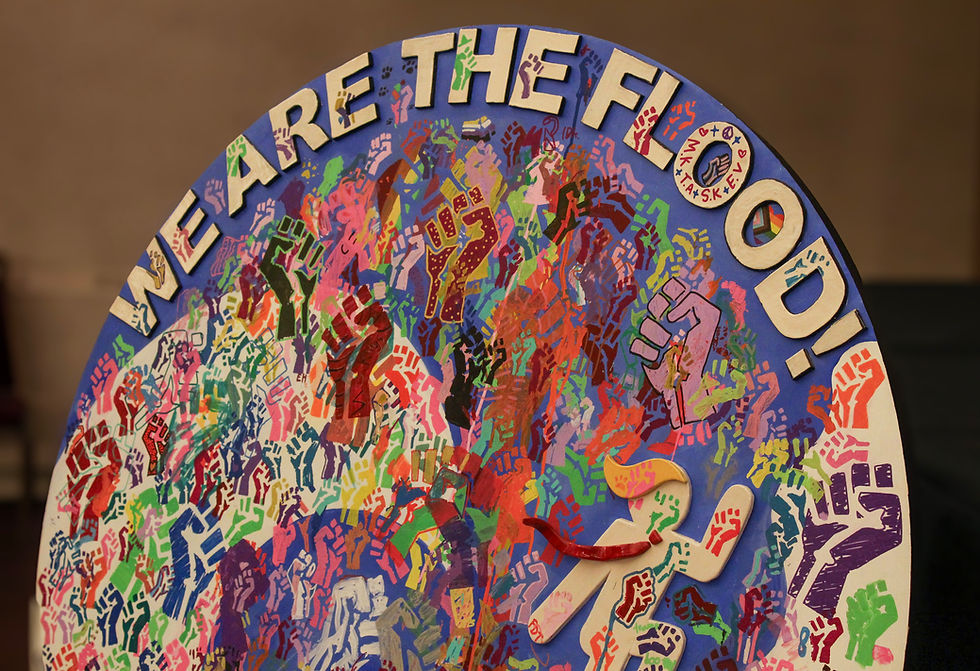“Working on Our Whiteness”: Anti-Racism Isn’t Just About the Other Side
- Collegian staff
- Mar 1, 2023
- 3 min read
Bjorn Domst
Staff Writer

There was a tangible air of uncertainty on Wednesday, Feb. 15, as people filed into the relatively secluded downstairs corner room of the Salem Public Library. Some of that was due to the discussion topic in question: “Working on Our Whiteness.” Individuals had come to engage with others in a minute analysis of the ways in which even anti-racist whites get in the way of promoting their own values.
There was a faint uncomfortable atmosphere as a result of the targeted national media coverage of this event in prior weeks. A single security guard watched over the gathering and things seemed peaceful enough upon entry, but until the “Working on Our Whiteness” event truly kicked off, there was no telling what might happen.
Dr. Emily Drew, a Willamette professor of Sociology and Ethnic Studies, would be leading the program for the night. She made it clear what her goals were not from the start, establishing that the talk was not focused on racism as a societal problem—participants already knew that much. “For about 15 years, the programs I was leading across the state were largely to introduce people to racism, to help make sense of how it works and its persistence today,” Drew reflected after the event.
The group of around 35 would be exploring racism from a different perspective altogether, looking at “what we are doing individually, interpersonally, that is keeping the machinery in place,” as put by Drew. It’s rather easy to blame the more overt racists as the central problem—relatives and friends alike—but Drew sees that kind of outlook as harmful to the overall movement. All are implicated in racism, no matter how strong one’s values may stand against it.
It’s human nature to desire a guilt-free conscience in this way, but that wasn’t the point of “Working on Our Whiteness.” The room, after all, was made up of people who had come in specifically willing to work on themselves, so Drew wanted to steer clear of the potential “others” that might come up. “My experience in racial justice and anti-racism work has led me to be in spaces where white people often talk about other white people being the bad ones, the racists, and us being the ones who get it and don’t have a problem.”
The Salem Public Library space carved out for the group was a safe and open one for individuals to voice their thoughts actively. Participants were allies—not competitors—in the fight against racism, so it wasn’t about who had done the most work, or who now held the least racist demeanor. From a somatic, sensory icebreaker on the program’s titled idea, to honest conversations with one another, the event flowed smoothly in and out of the various difficult questions participants were faced with. By the end, the program even shifted to a “meta-conversation” of the previous discussions, reflecting on the experience as a whole. Some had more active voices, but even the quiet listeners were contributing vastly to the accepting ambiance.
Drew considered the event to have been a success. “My hopes were that people who were open and curious would come and be willing to do self-reflective work … I really did hear a lot of that going on.” Having done several programs of a similar nature across the state of Oregon, she also noted that getting asked to lead the discussion so close to home was a great experience. Drew was thankful for the support she received in going forward despite the overall “noise” surrounding the event, and hopes to keep driving forward with these communal talks. It takes small, incremental steps, but her objective was made perfectly clear: “Let’s shift the needle on racism.”




Comments